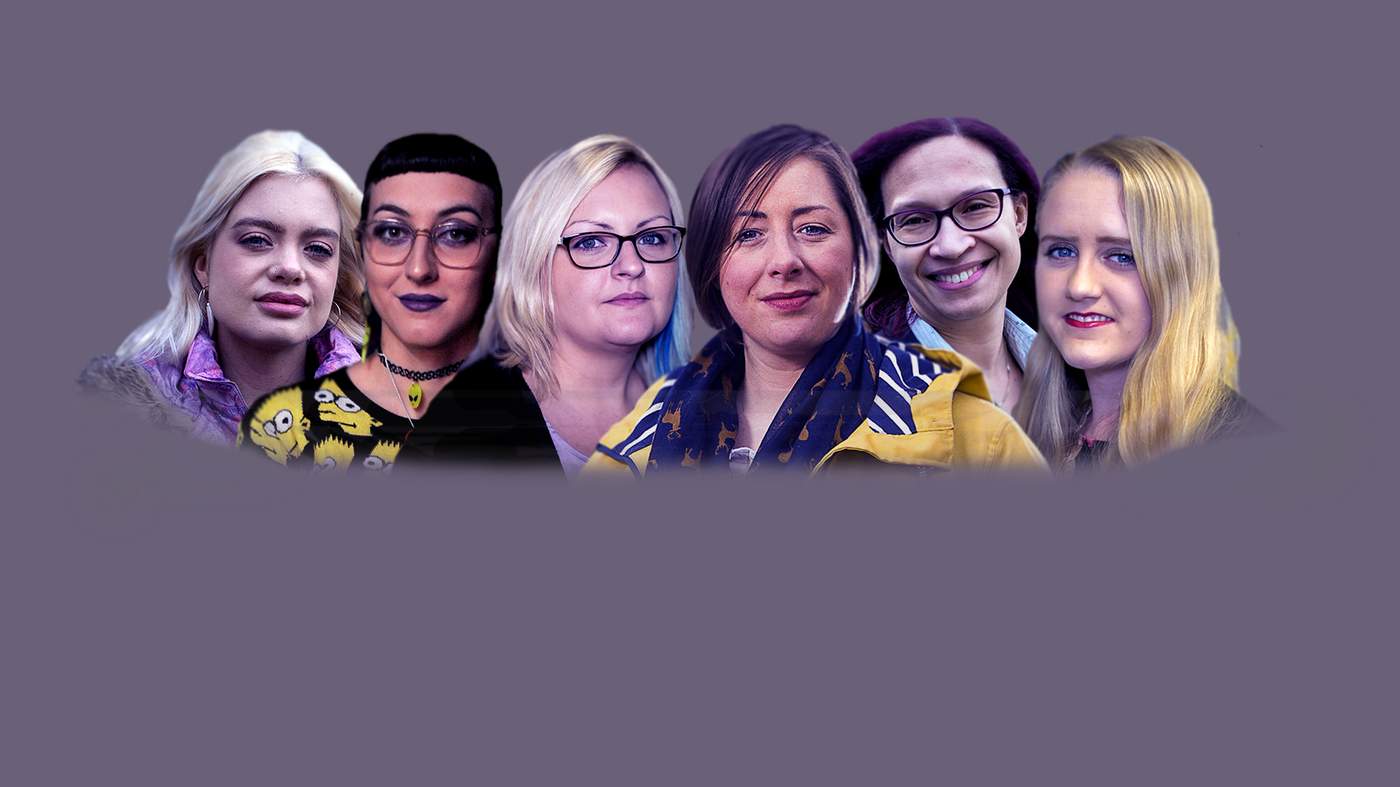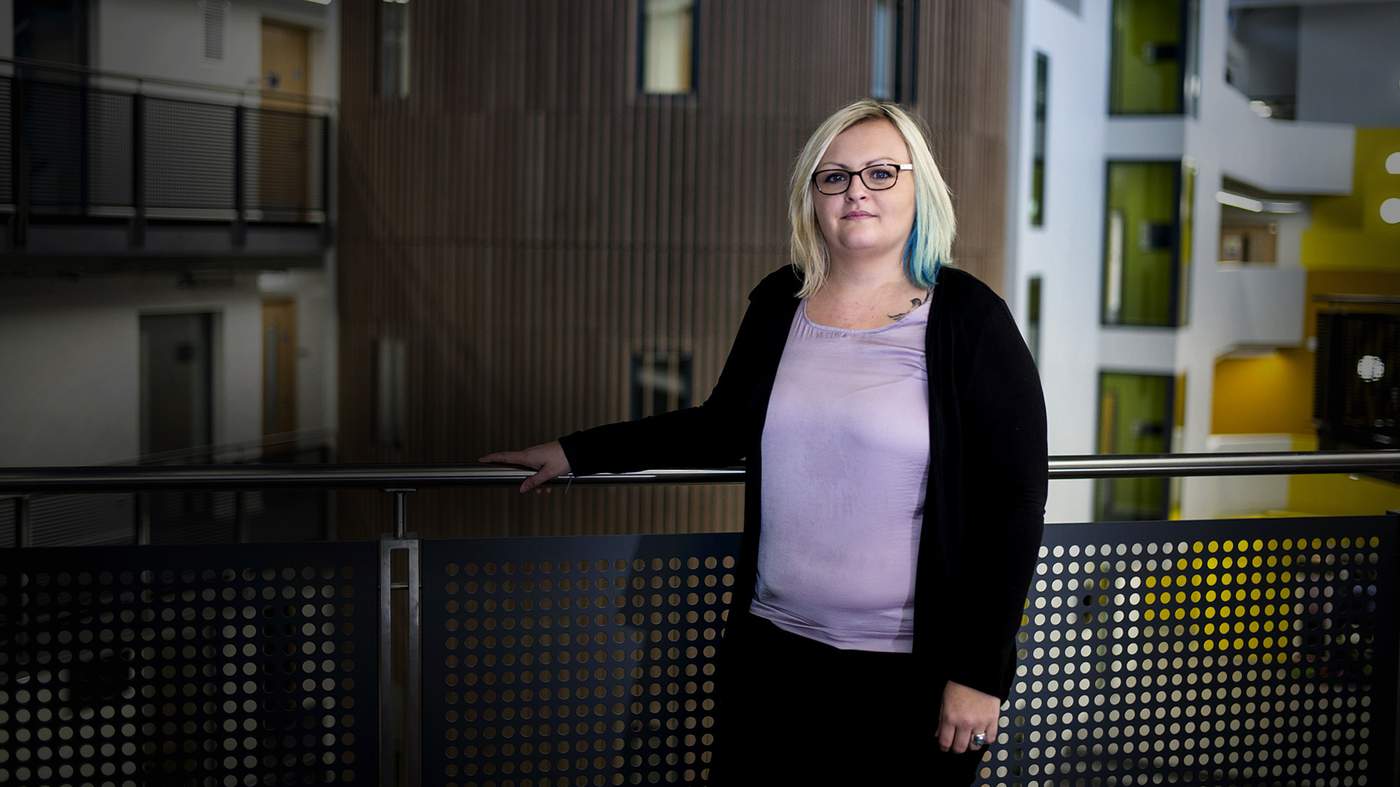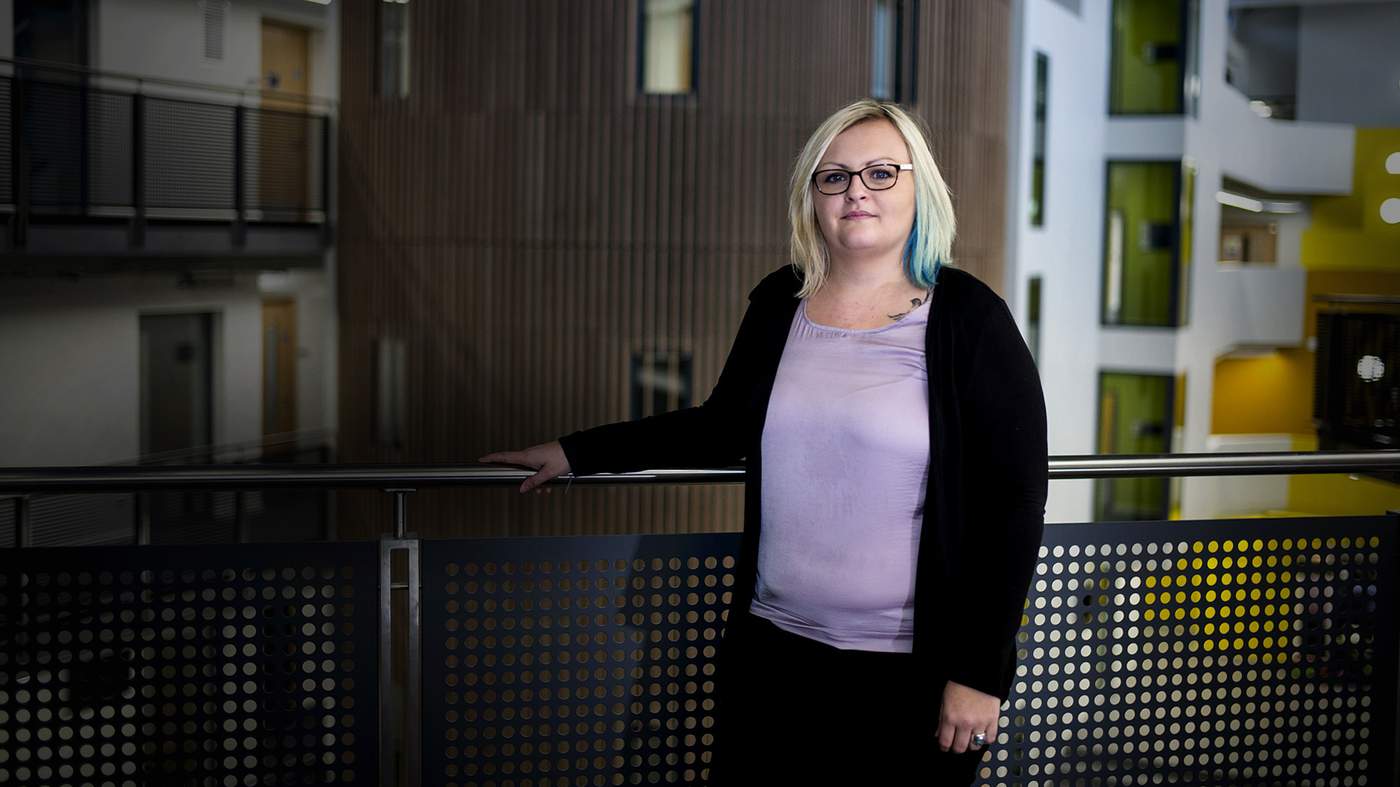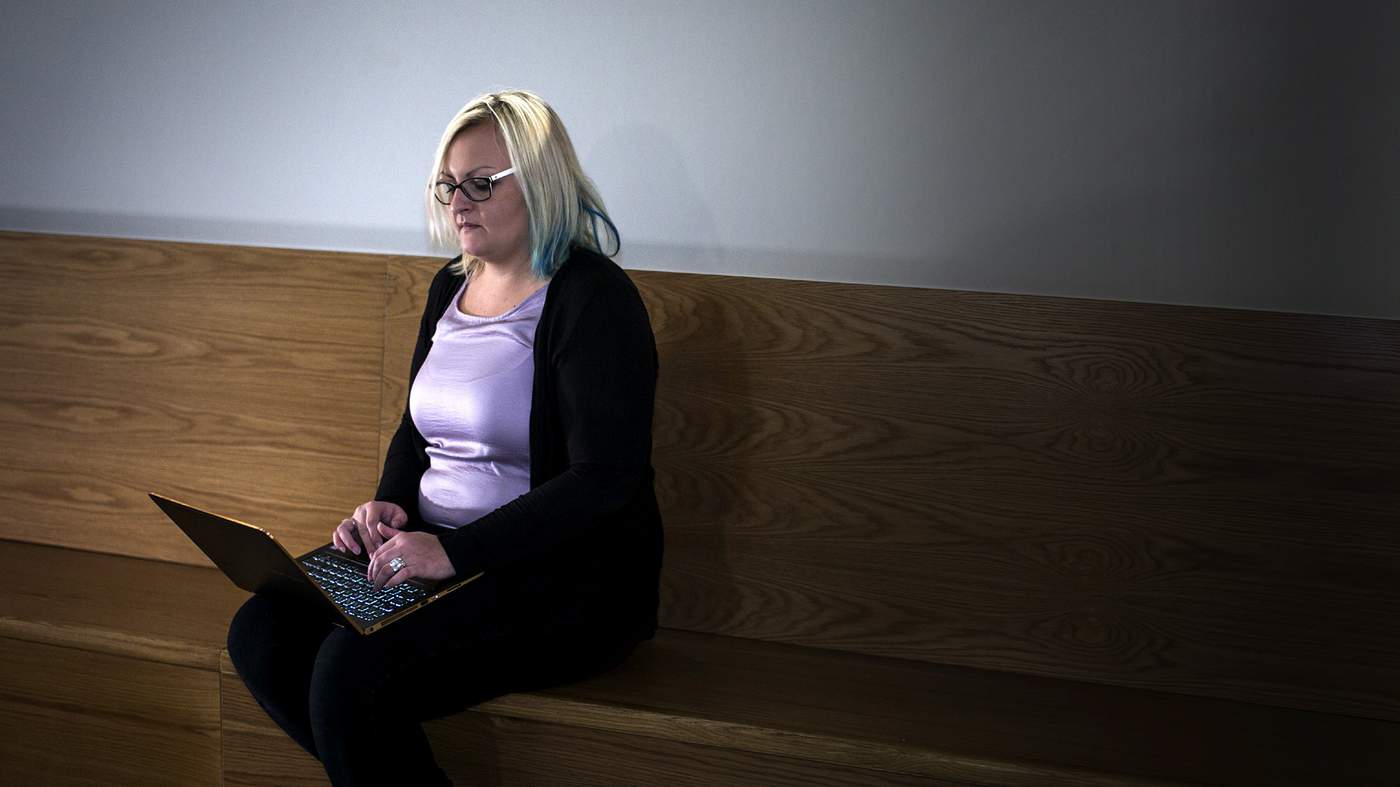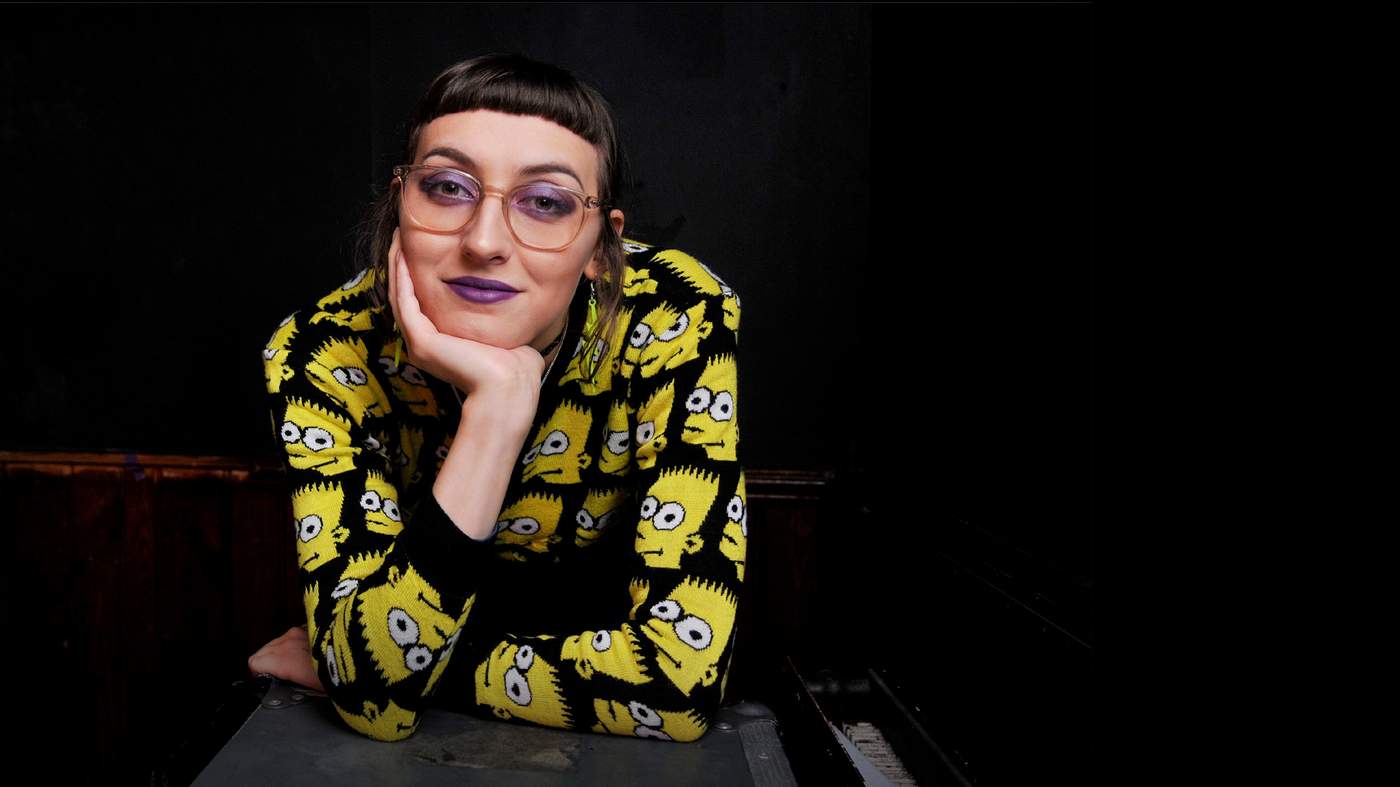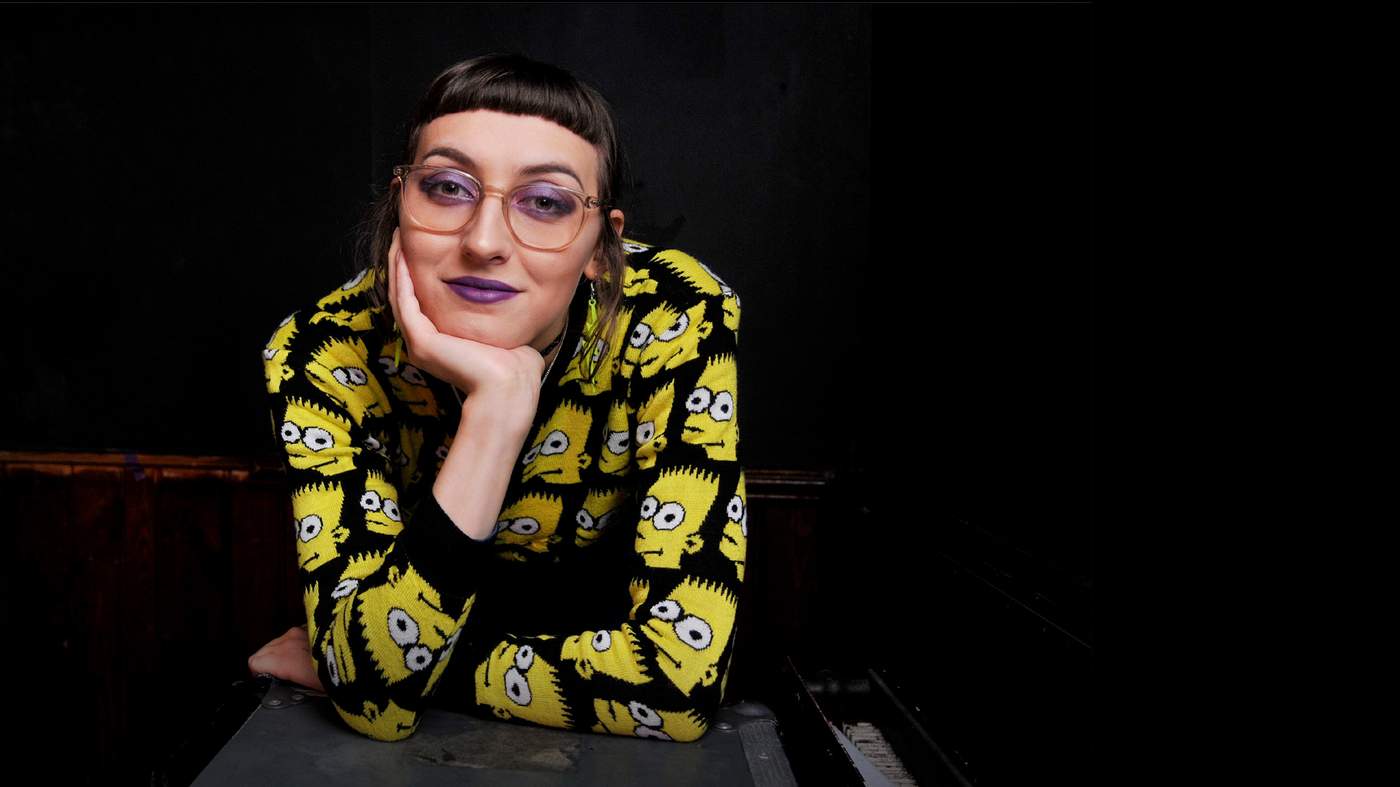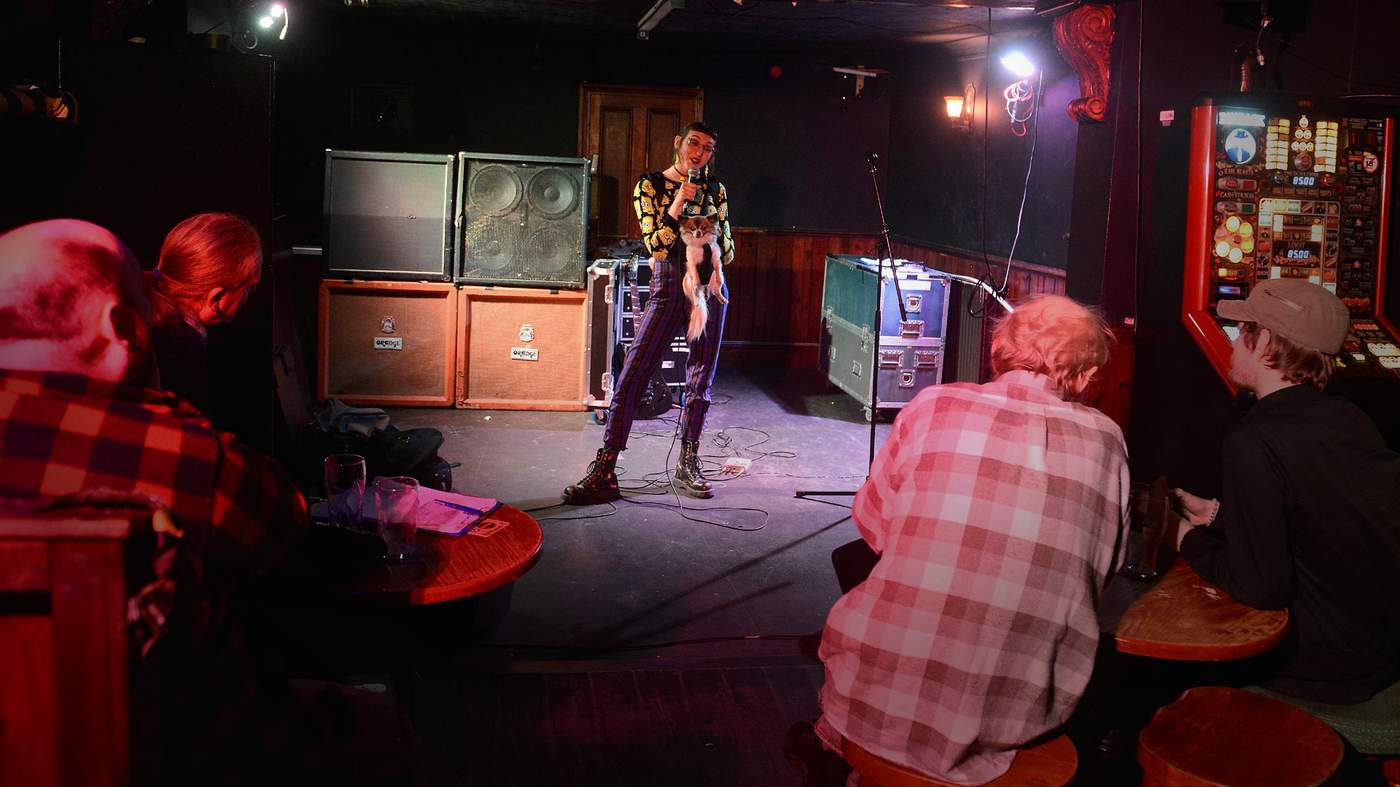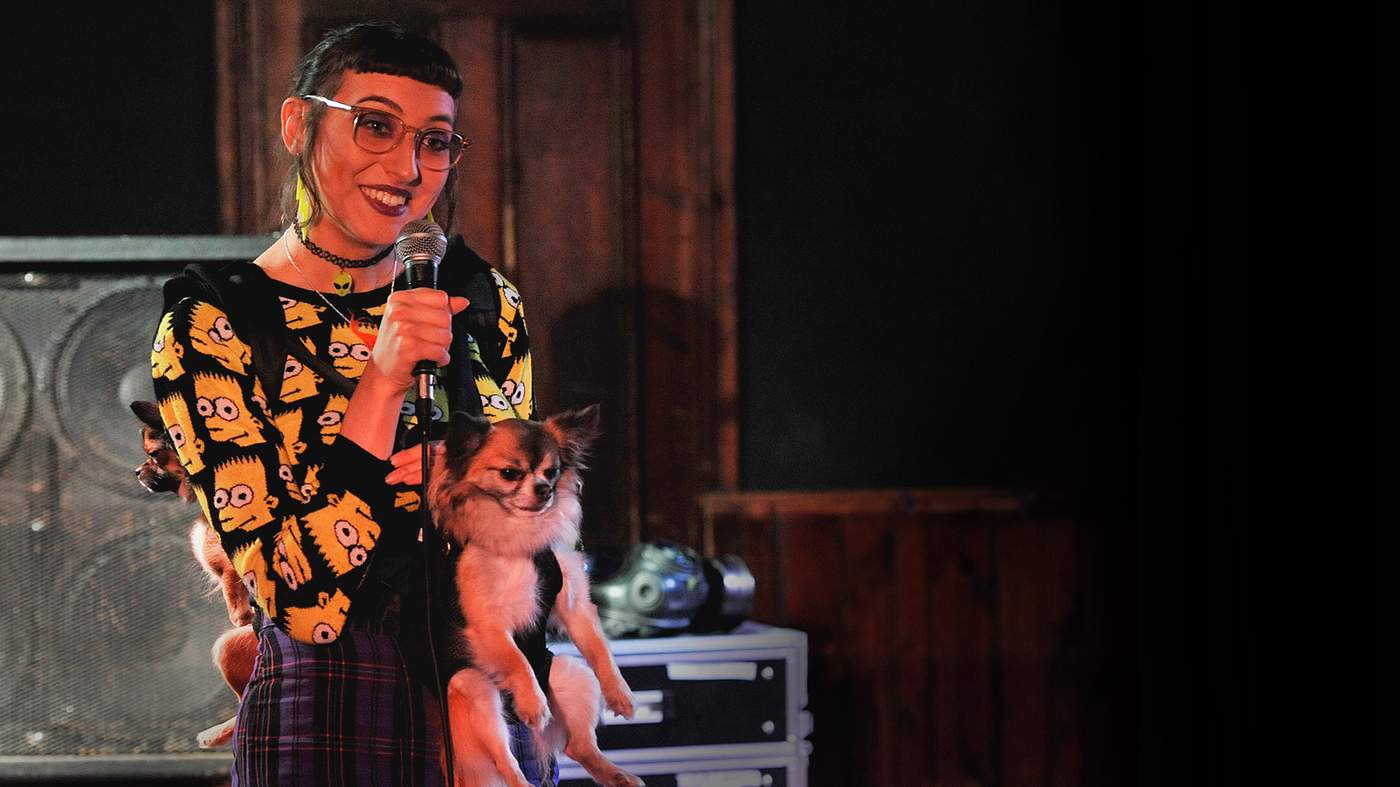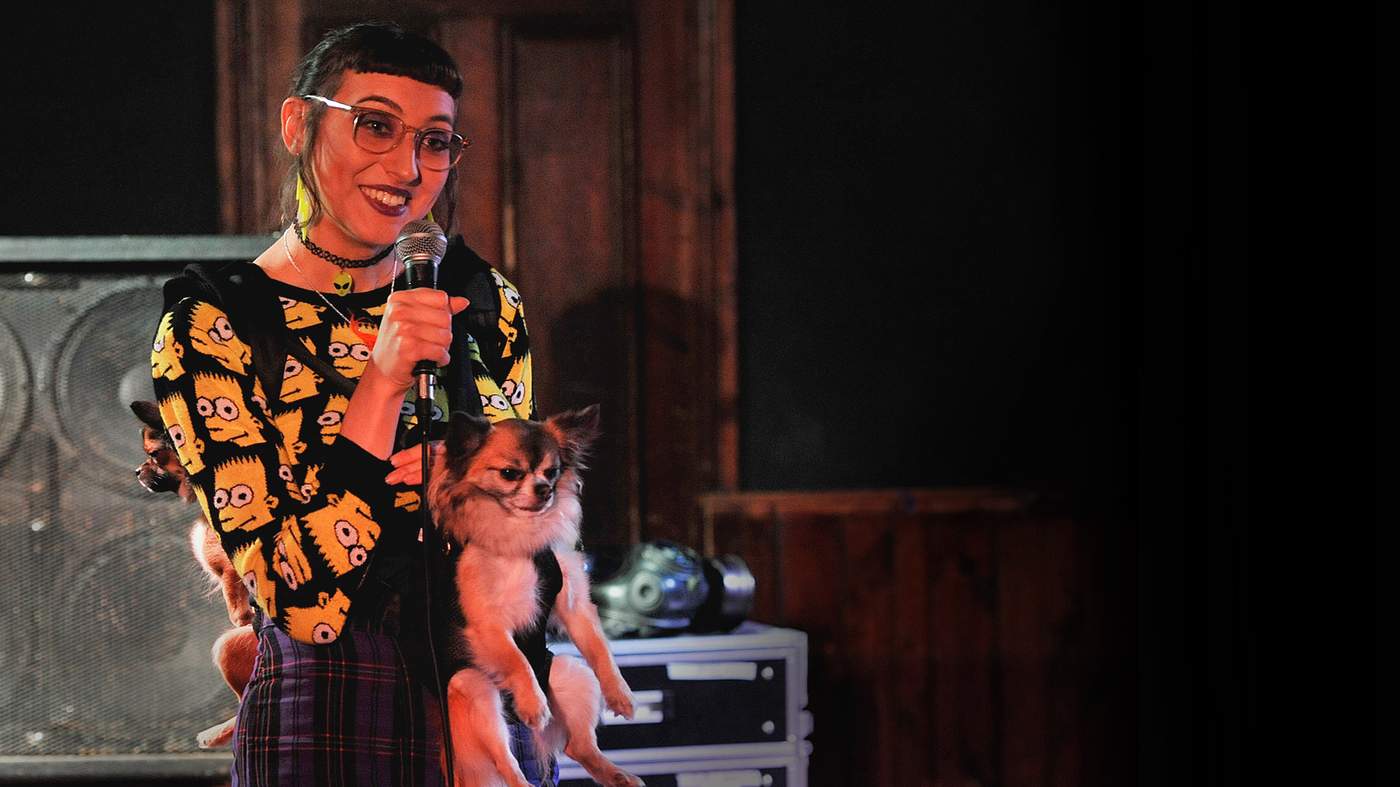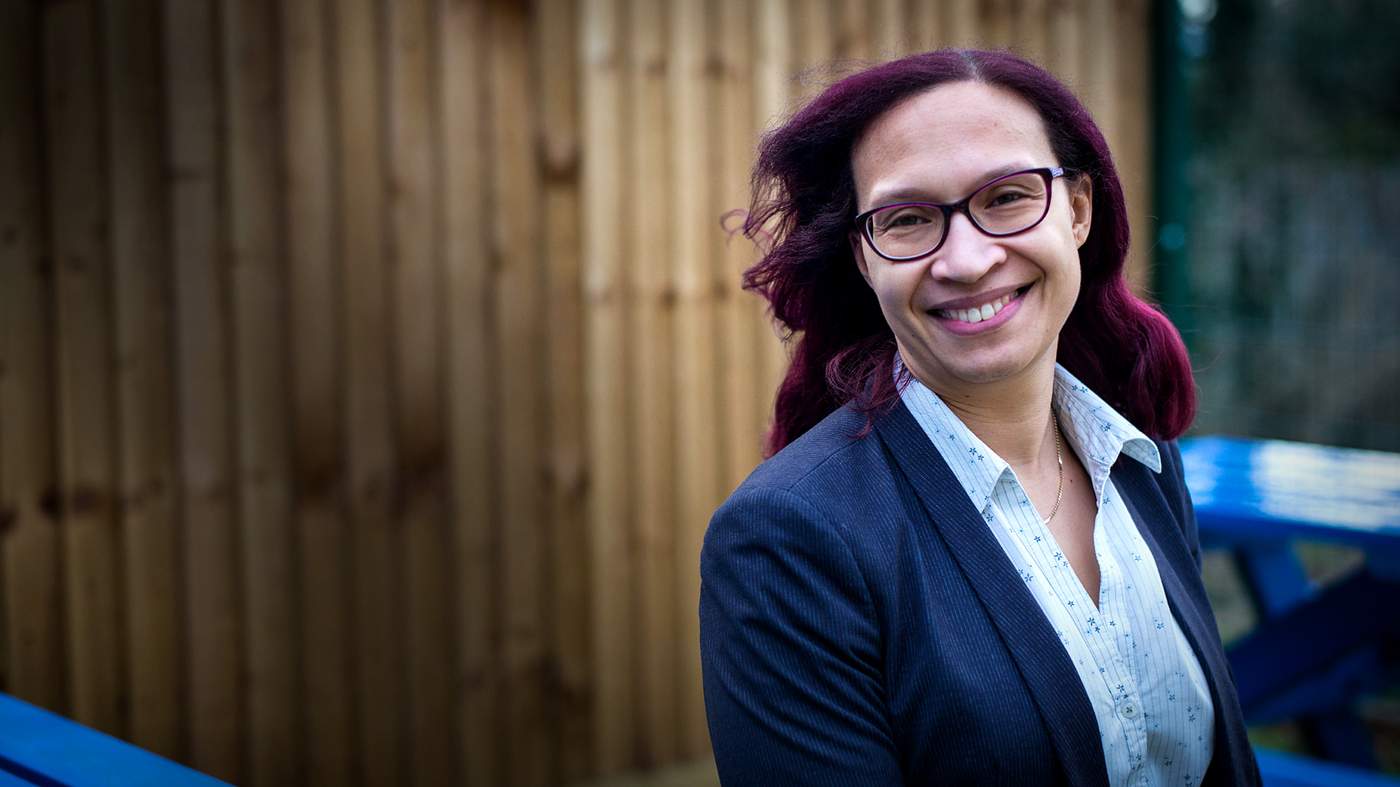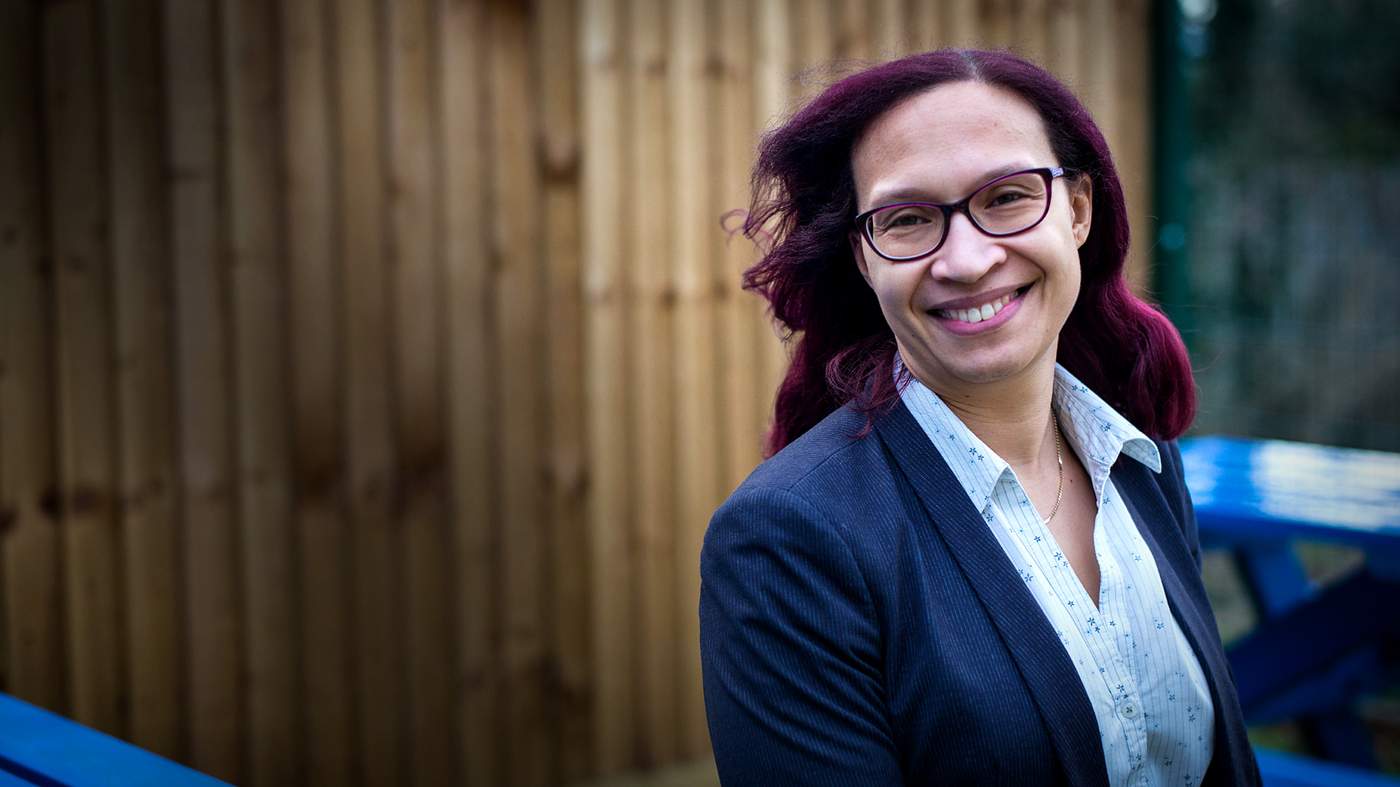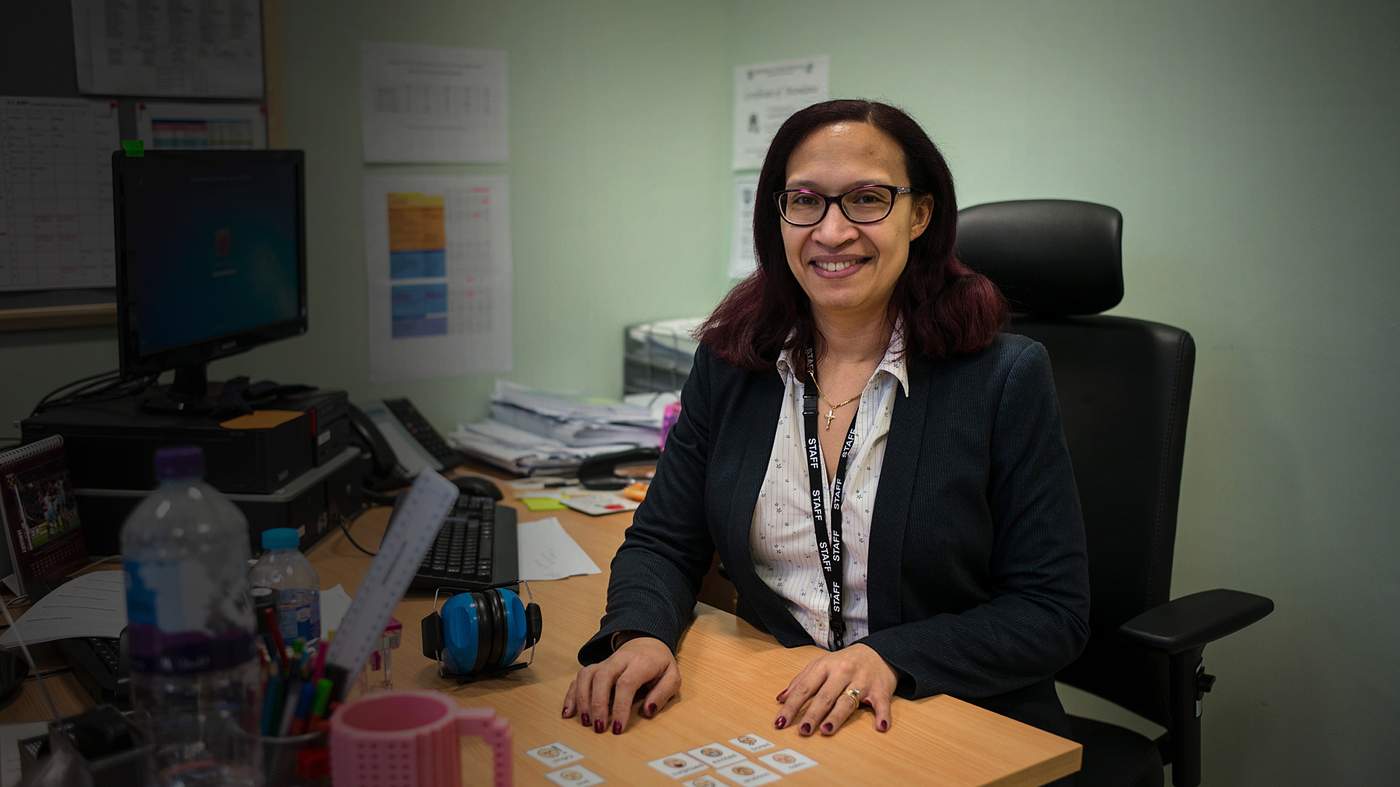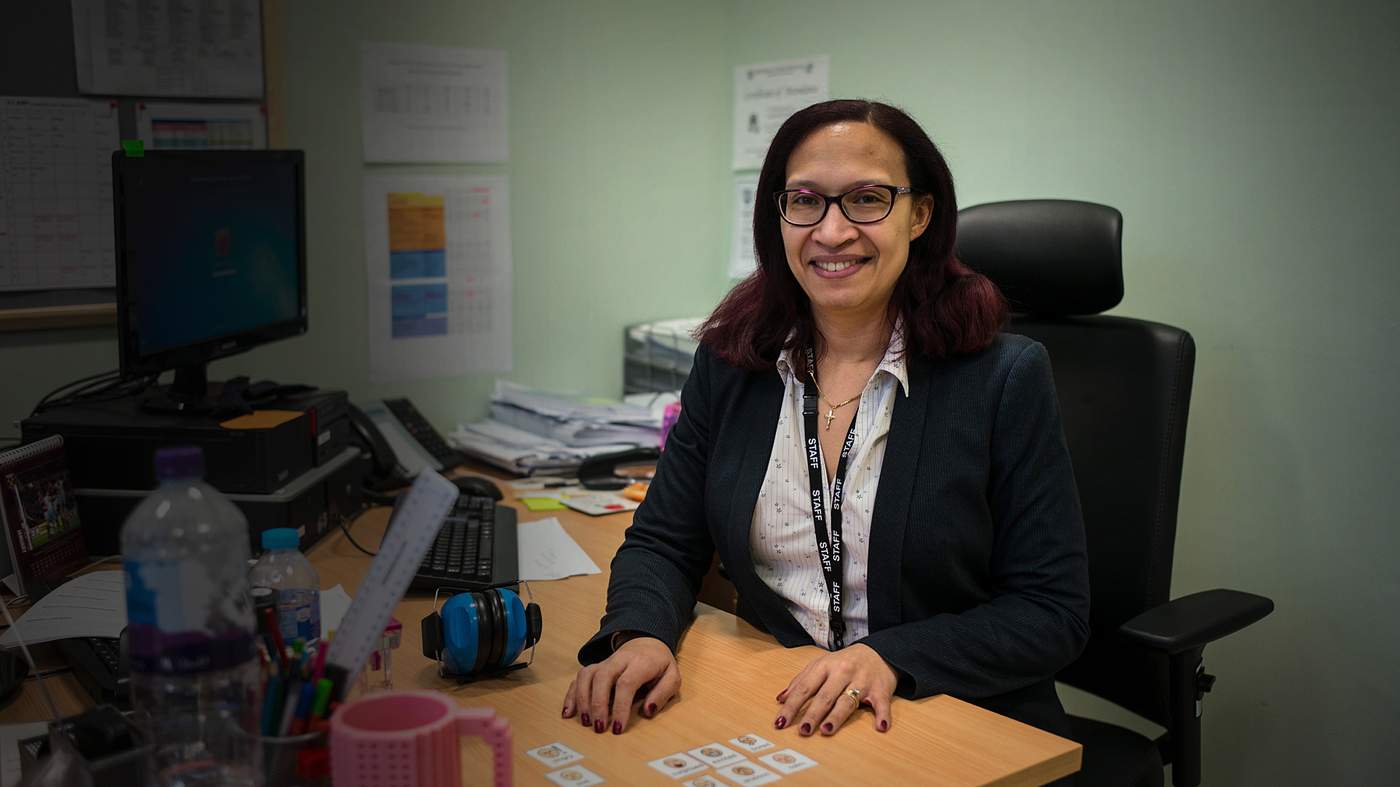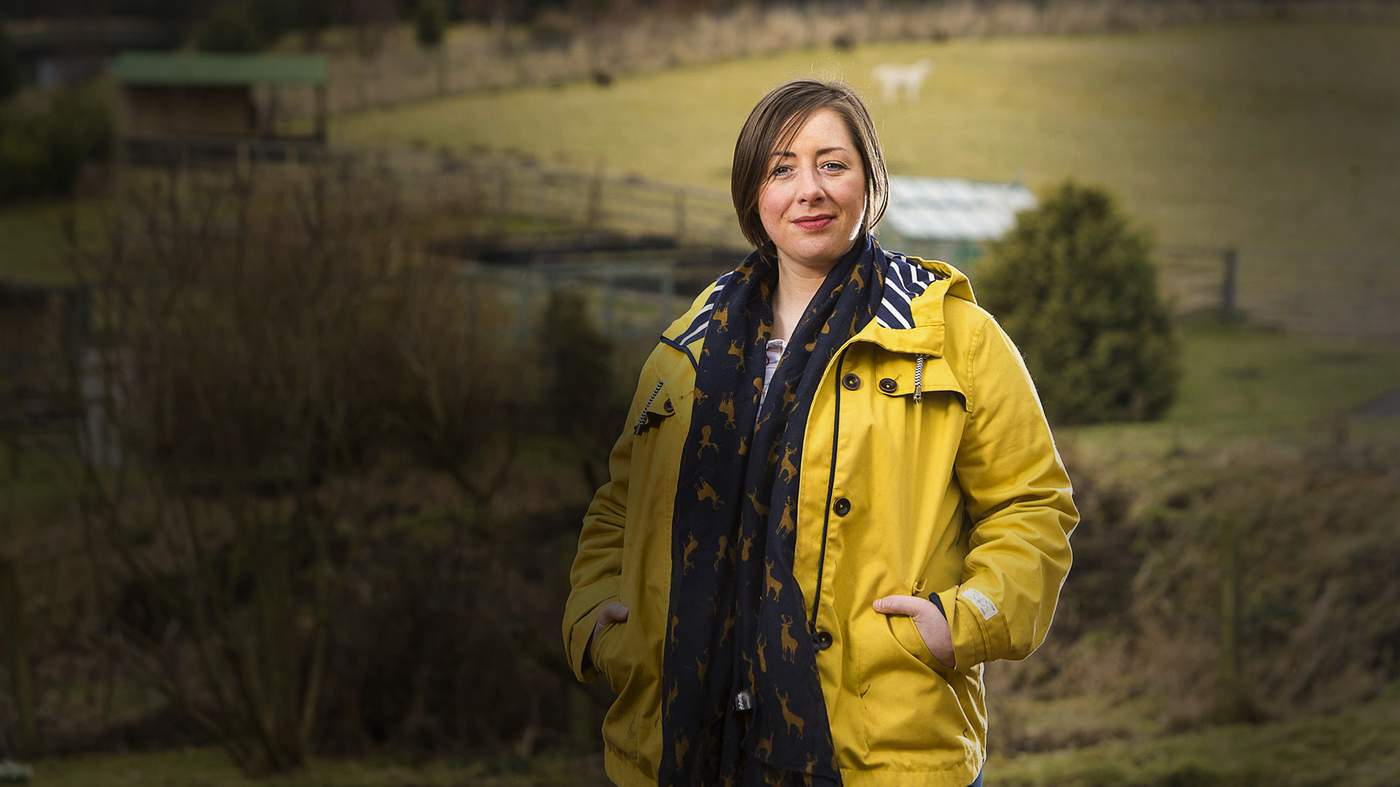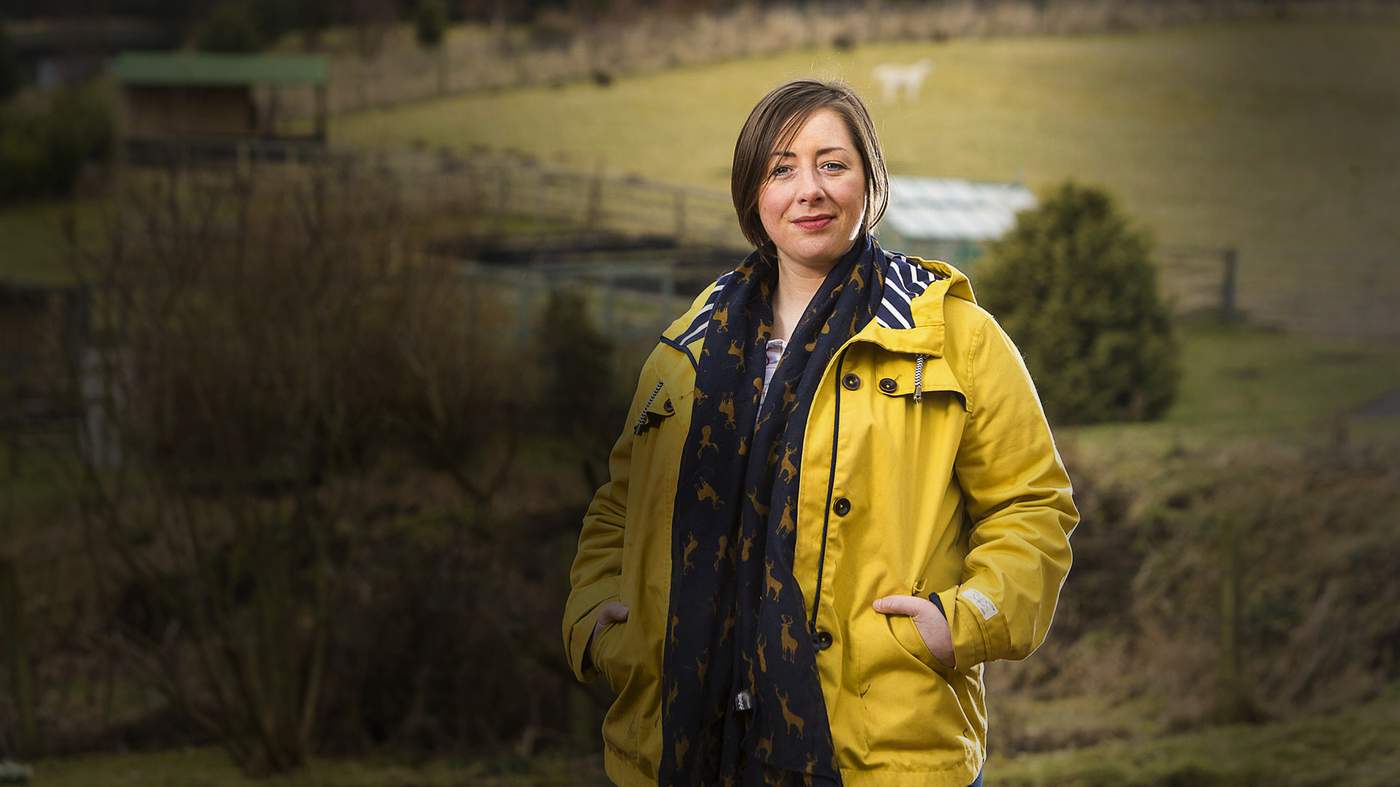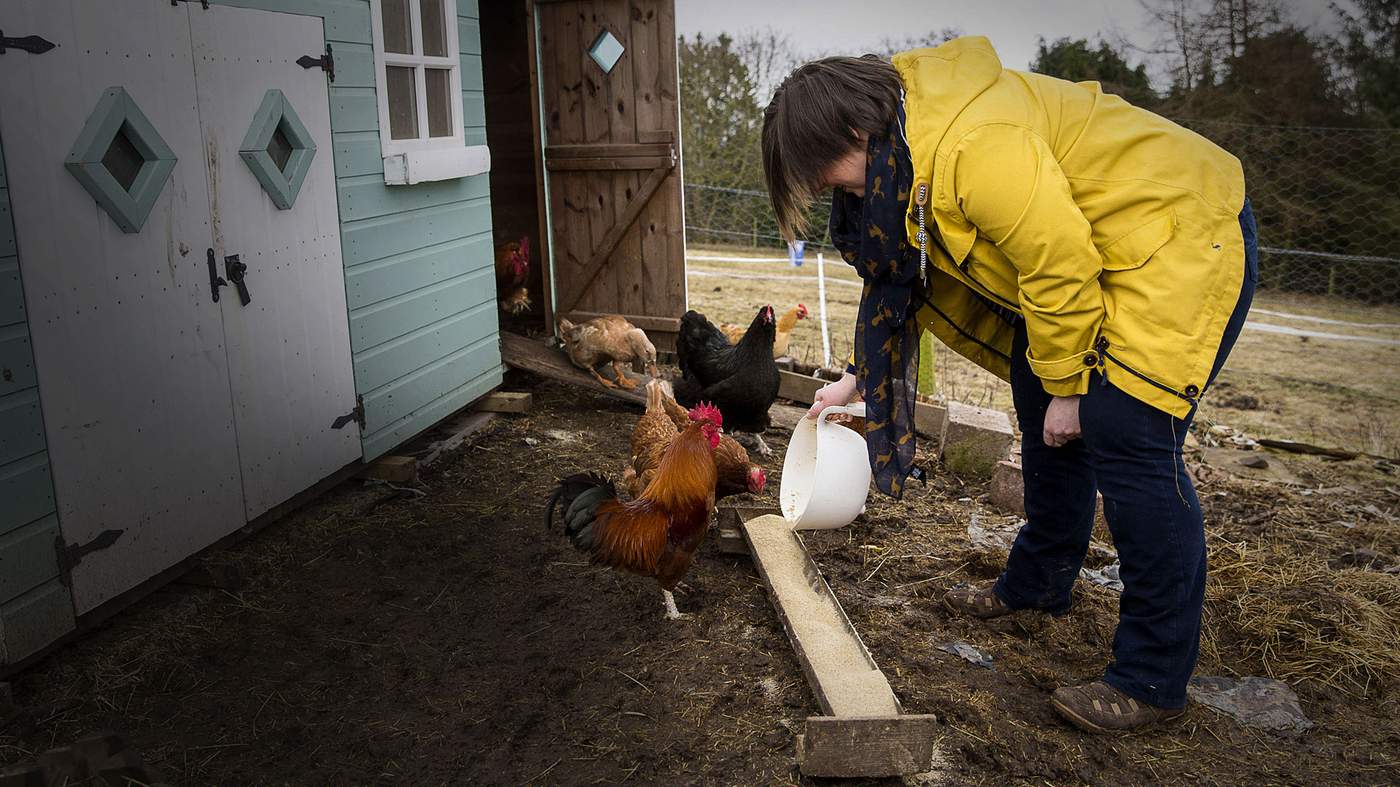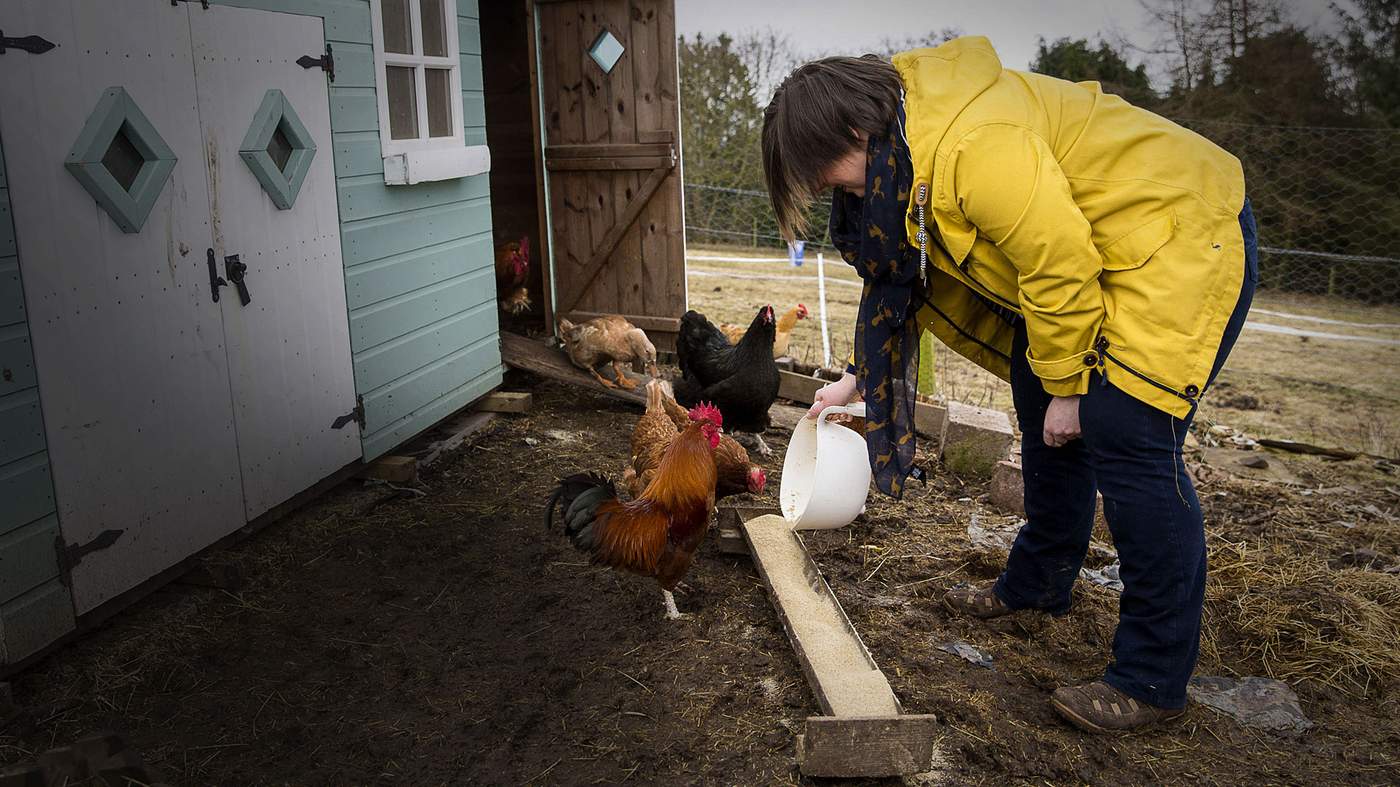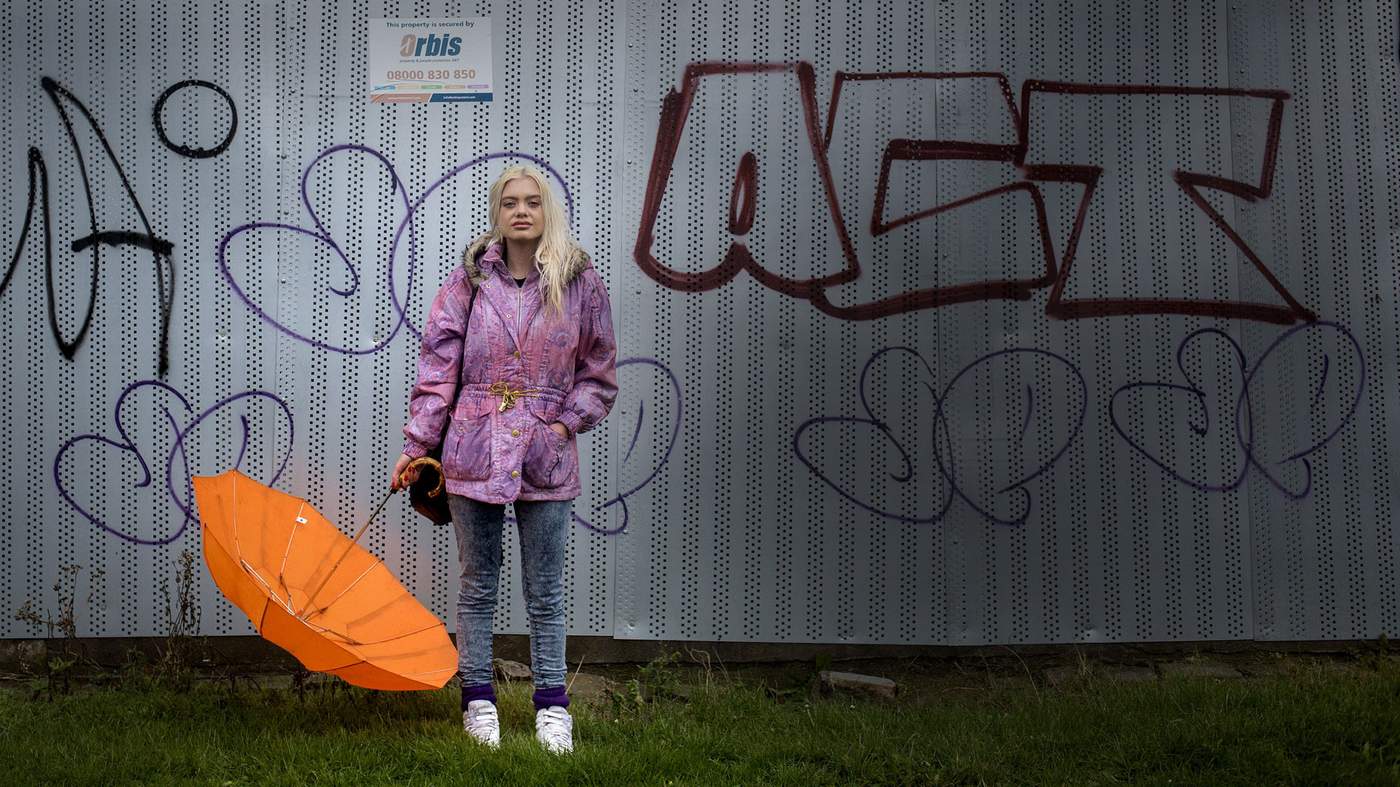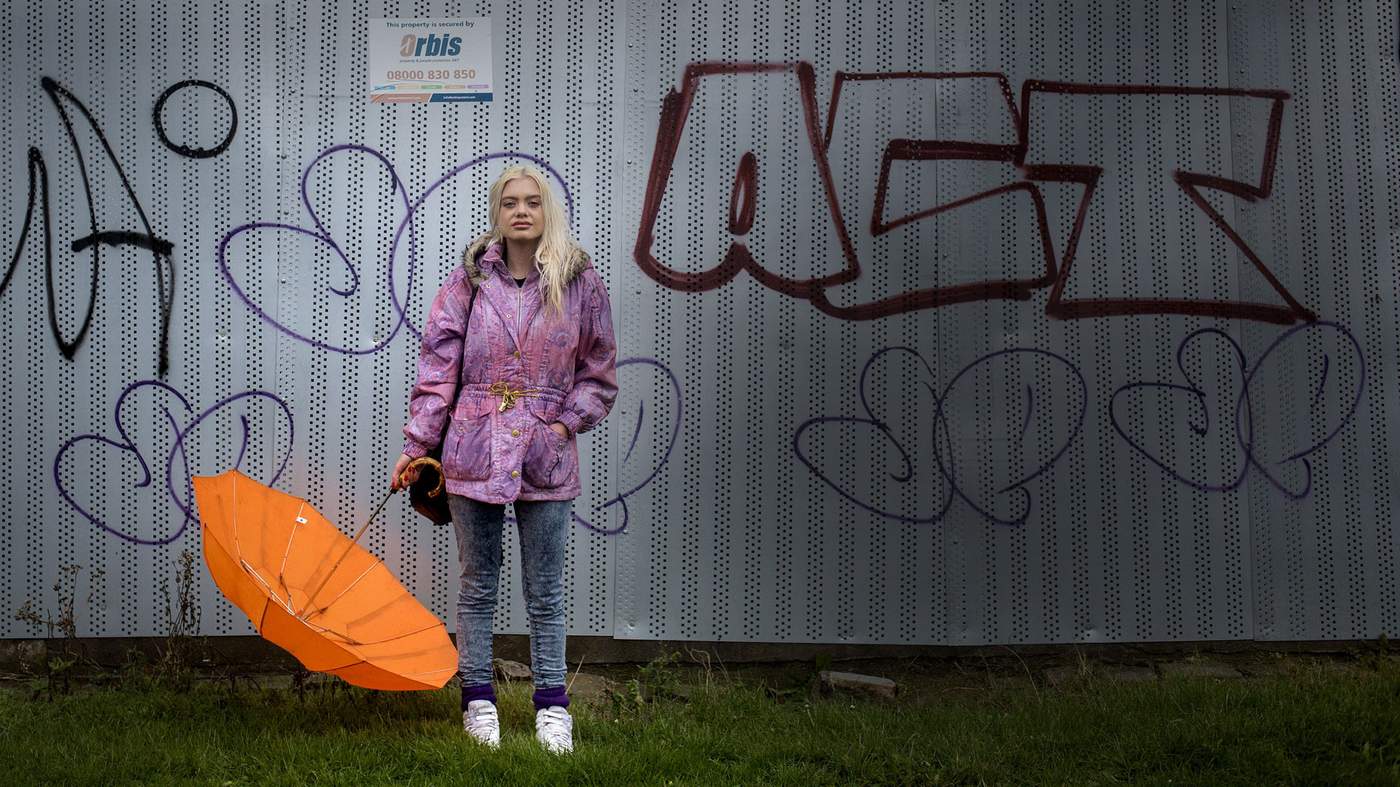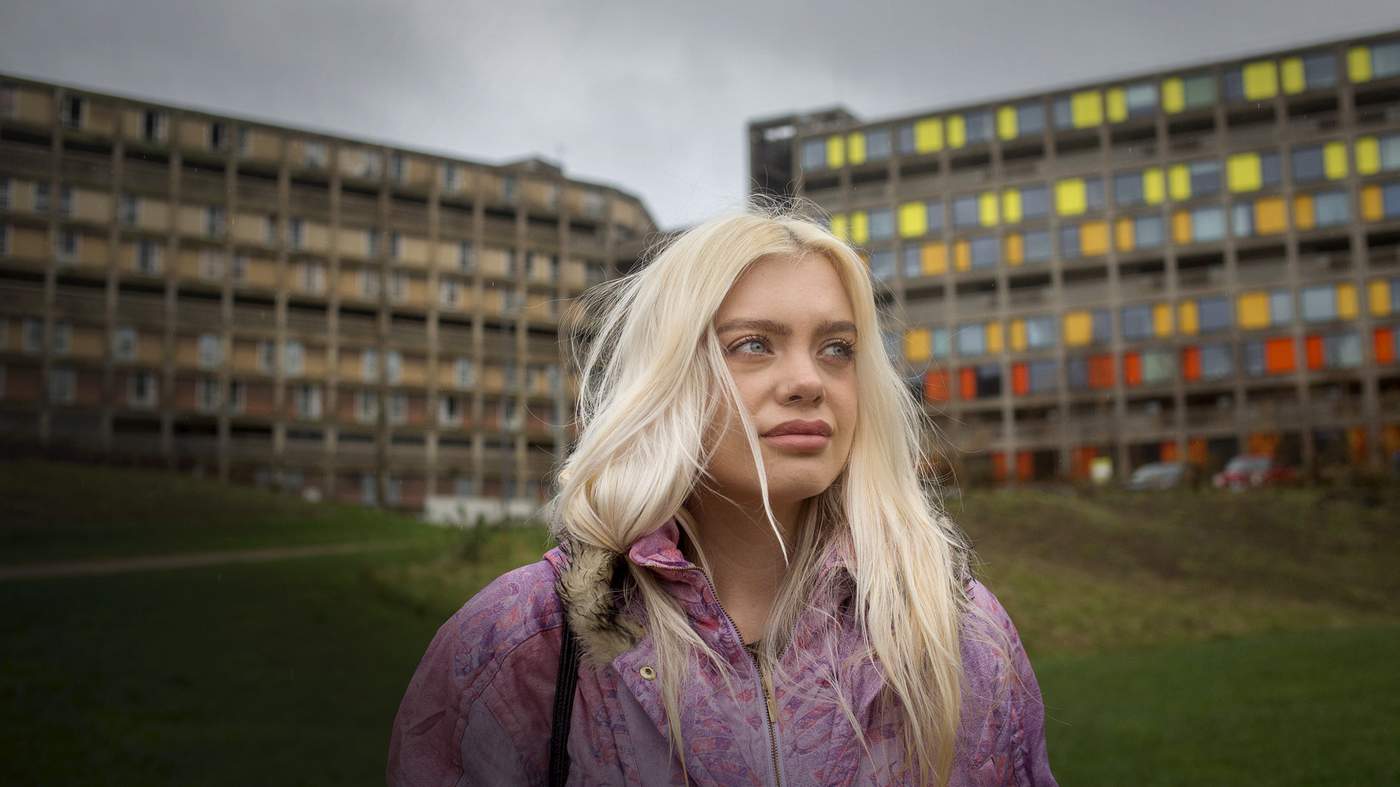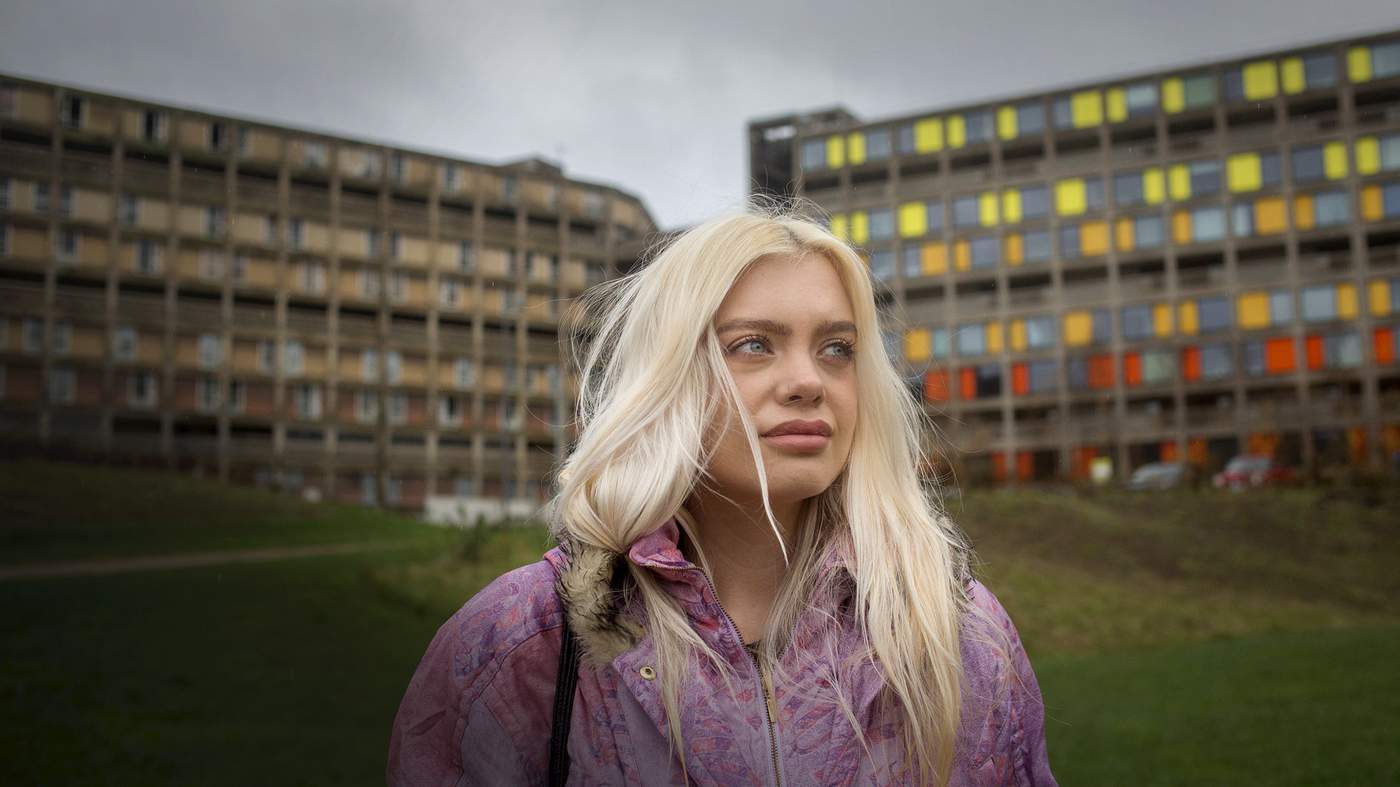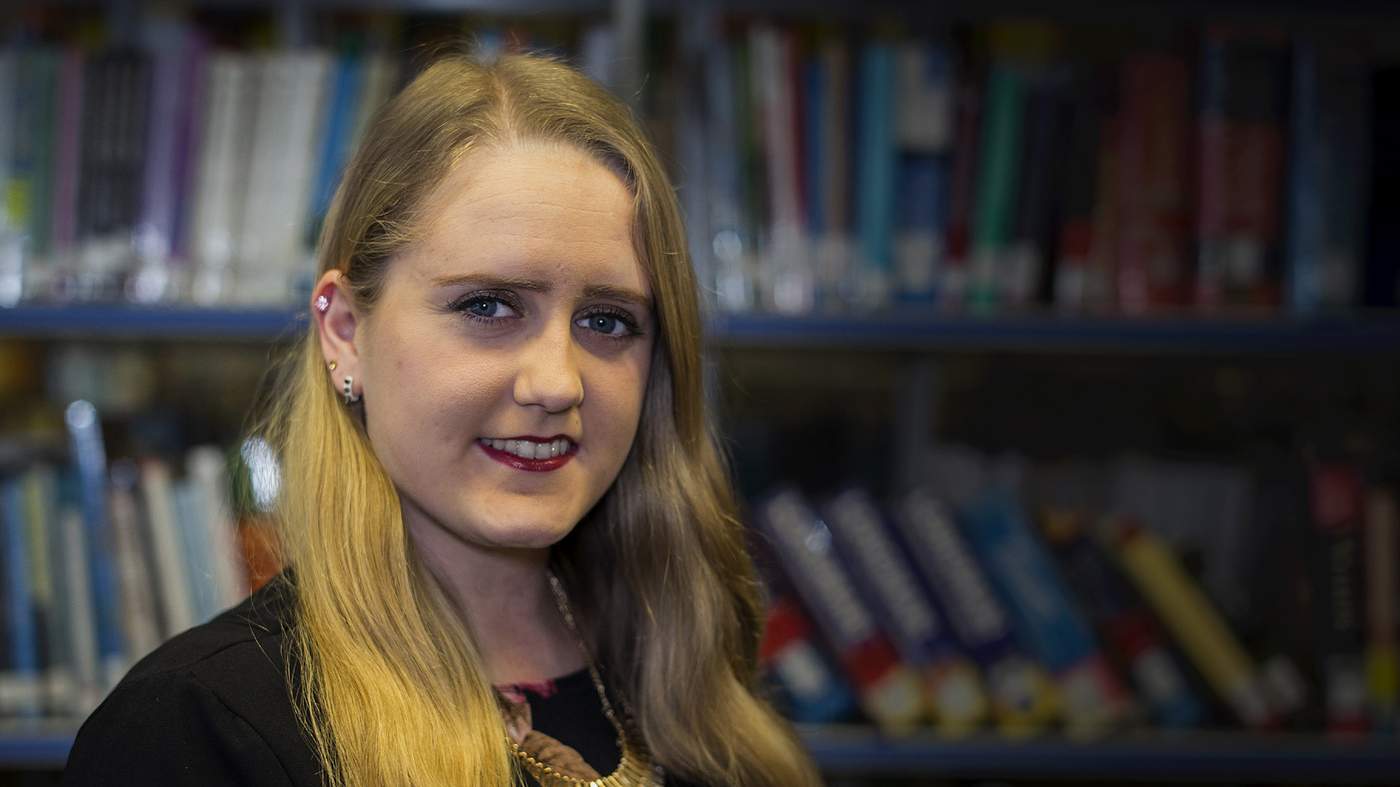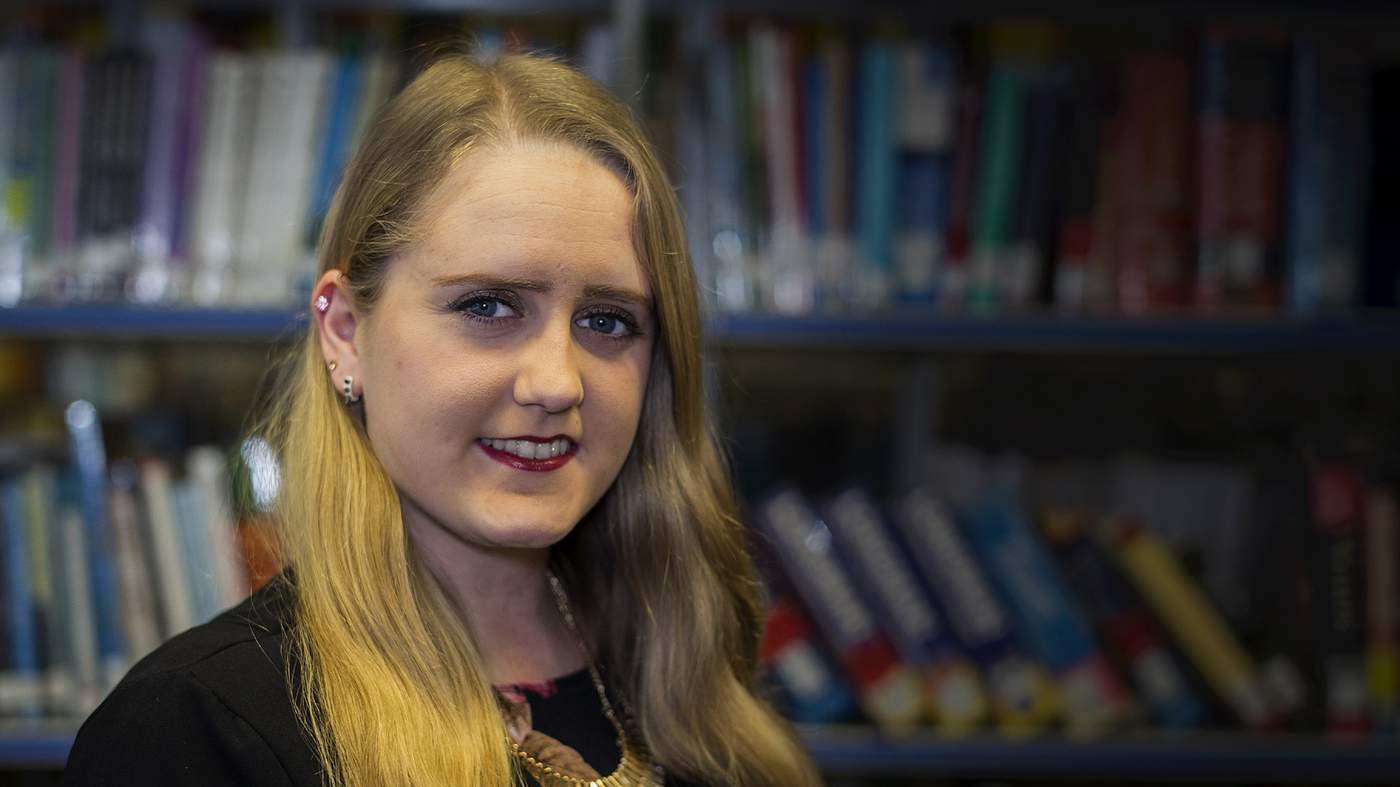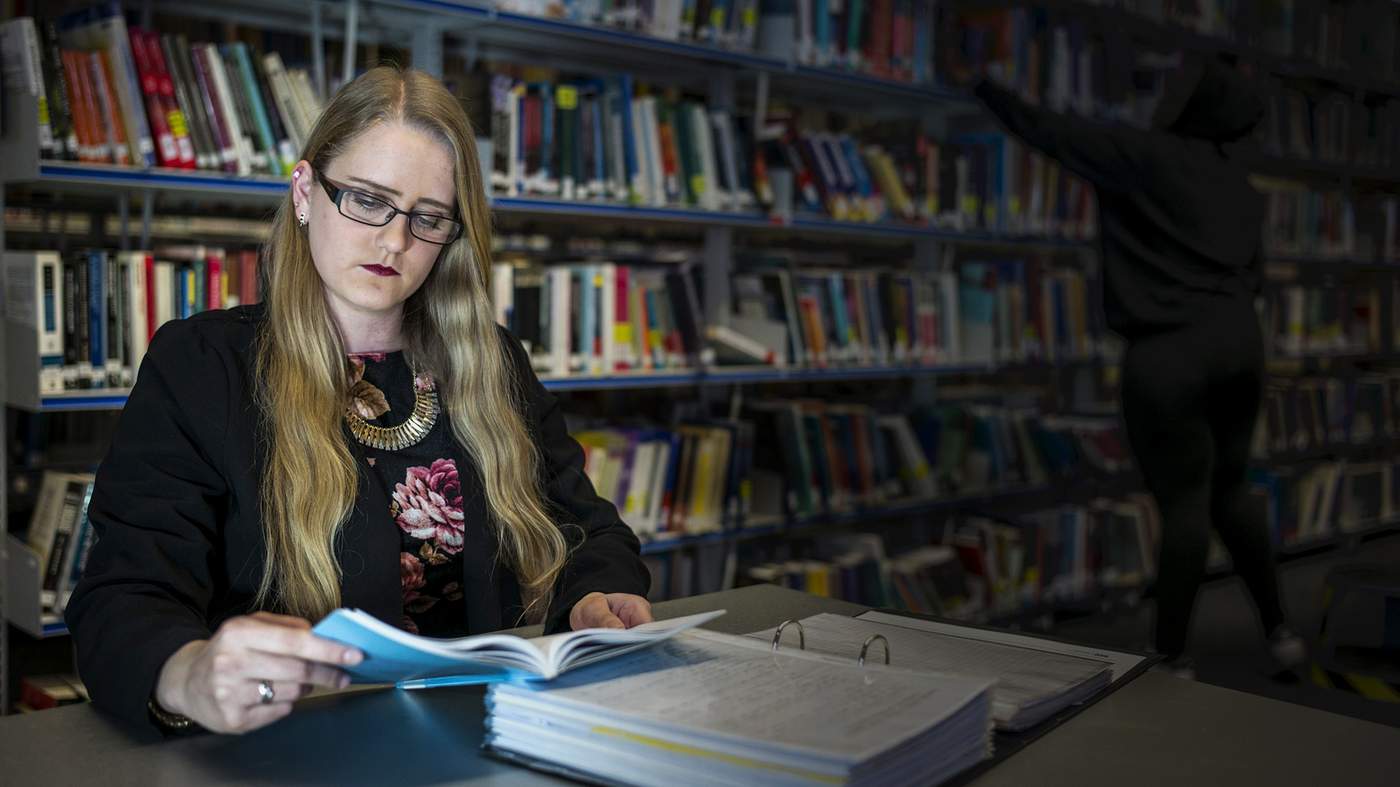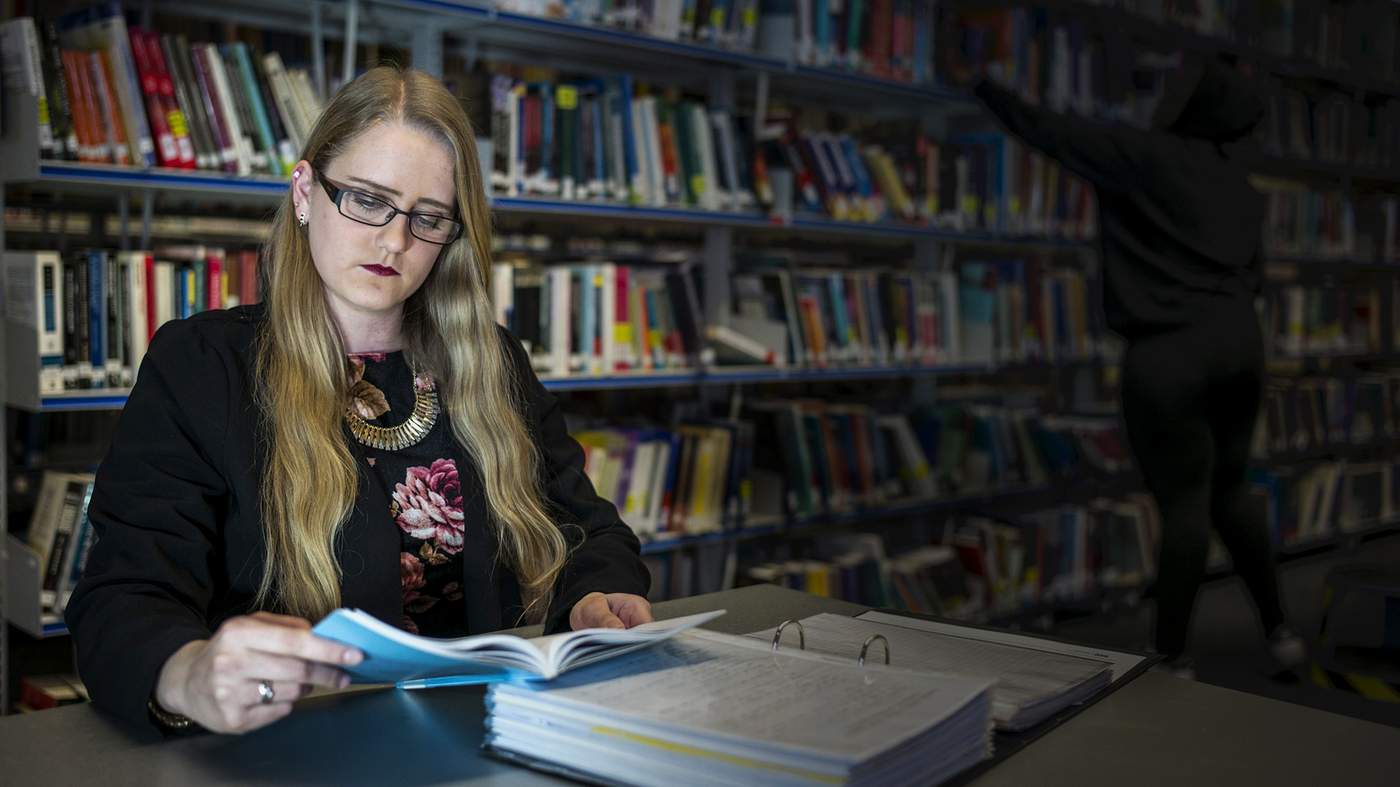“I'm Maura Campbell.
I was born with the social skills of a used teabag.”
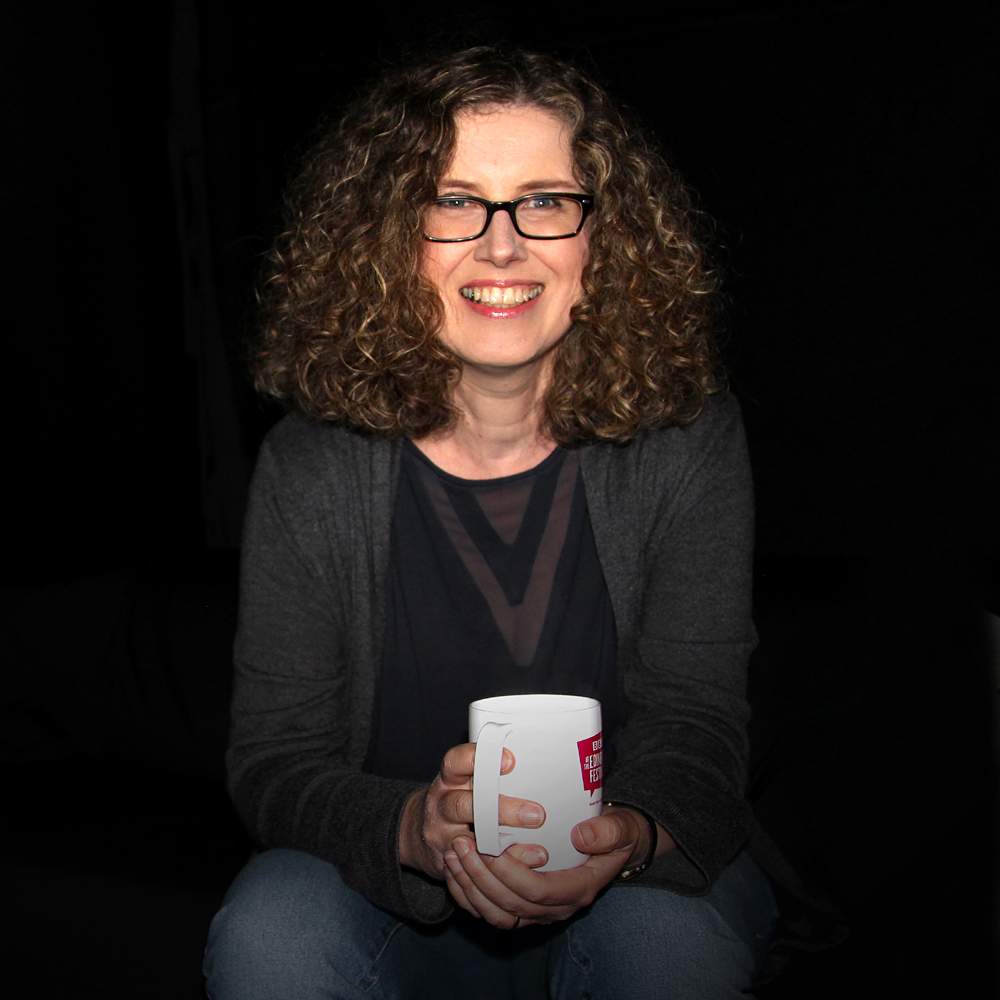
“That’s how I described myself at the ����ý Ouch storytelling event at the Edinburgh Festival Fringe last year.
I'm now 50. Six years ago I was diagnosed with Asperger syndrome, a form of autism. Like many women, this came after the diagnosis of my son, Darragh.
If it wasn't for this, I'd have gone through the rest of my life unaware of why I felt different.
As a child I'd felt as though everyone but me had been given a manual on how to behave around other people.
I was more comfortable around pets. Because I performed well academically and masked my anxiety, I flew under the radar.
People assumed I was just shy.
When my autism was identified, it felt like taking off a corset I didn’t know I’d been wearing.
I understand now that I have a brain that processes sensory and social information differently from most other people.
I can take better care of myself by managing my social energy and avoiding sensory overload. I have found a sense of identity.
Women do not need to fear a diagnosis - it may help explain so much. Whether to disclose it is, of course, a personal choice.
I am living the life I want to live.
I have an interesting and rewarding career in Northern Ireland's civil service alongside supportive colleagues who accept me as I am.
Since Edinburgh, I've continued writing about autism and disability and had several articles published. I've co-authored a book along with some of my autistic sisters from around the globe, some of whom have become close friends.
Most importantly, my diagnosis has enriched my personal relationships and made me a more confident mother.
Darragh and I have a special bond and he makes me proud every single day.”

“Keep scrolling to meet six other women who - like me - only found out they were on the spectrum when they reached adulthood.”
“I'm Maura Campbell.
I was born with the social skills of a used teabag.”
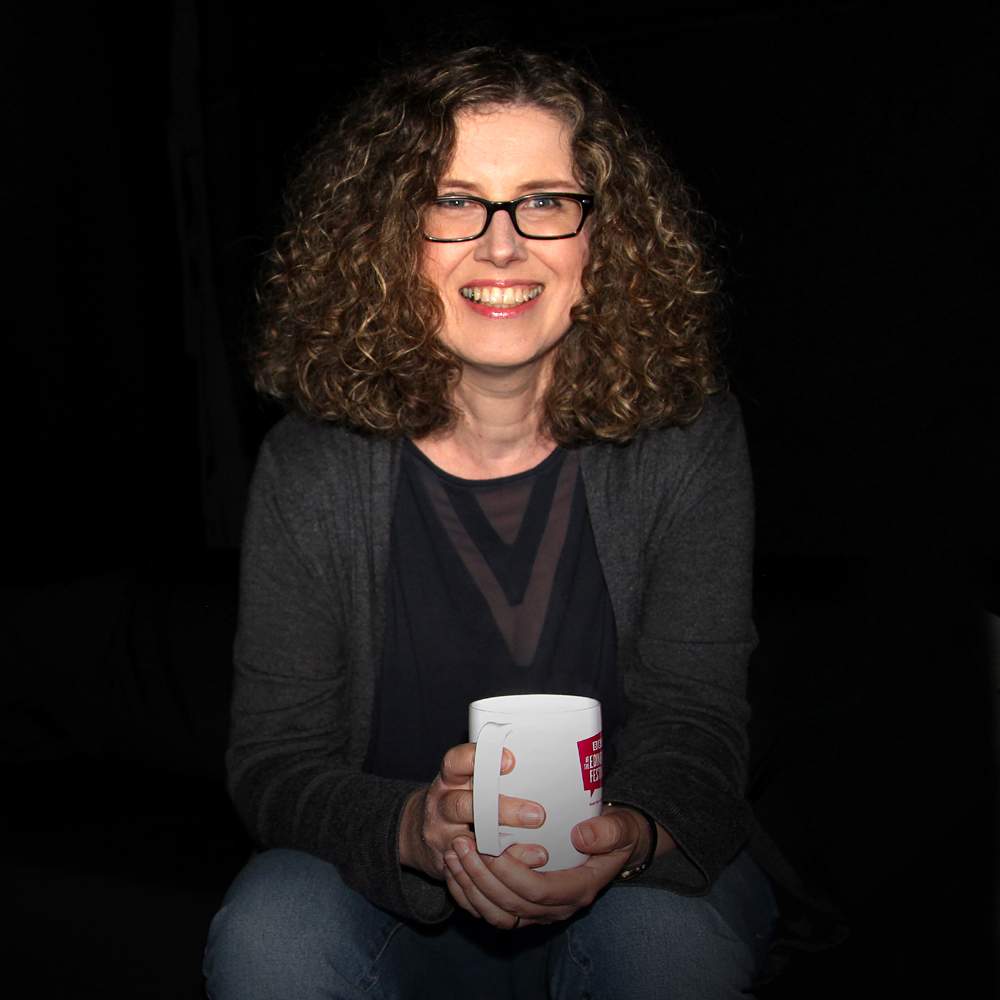
“That’s how I described myself at the ����ý Ouch storytelling event at the Edinburgh Festival Fringe last year.
I'm now 50. Six years ago I was diagnosed with Asperger syndrome, a form of autism. Like many women, this came after the diagnosis of my son, Darragh.
If it wasn't for this, I'd have gone through the rest of my life unaware of why I felt different.
As a child I'd felt as though everyone but me had been given a manual on how to behave around other people.
I was more comfortable around pets. Because I performed well academically and masked my anxiety, I flew under the radar.
People assumed I was just shy.
When my autism was identified, it felt like taking off a corset I didn’t know I’d been wearing.
I understand now that I have a brain that processes sensory and social information differently from most other people.
I can take better care of myself by managing my social energy and avoiding sensory overload. I have found a sense of identity.
Women do not need to fear a diagnosis - it may help explain so much. Whether to disclose it is, of course, a personal choice.
I am living the life I want to live.
I have an interesting and rewarding career in Northern Ireland's civil service alongside supportive colleagues who accept me as I am.
Since Edinburgh, I've continued writing about autism and disability and had several articles published. I've co-authored a book along with some of my autistic sisters from around the globe, some of whom have become close friends.
Most importantly, my diagnosis has enriched my personal relationships and made me a more confident mother.
Darragh and I have a special bond and he makes me proud every single day.”

“Keep scrolling to meet six other women who - like me - only found out they were on the spectrum when they reached adulthood.”
Interviews by Lucy Edwards
Hannah
Cambridgeshire, 28 years old, PhD student

“I’m carrying out PhD research at Anglia Ruskin University into autistic females who may go undiagnosed.
Women and girls often have a natural drive to fit in socially, and so the symptoms they present with aren’t stereotypically ‘autistic’.
They can be more compelled to make friends - and so they learn to mimic non-autistic people.
For example, they might find making eye contact difficult. I know I did.
I’ve learned to count it out. I will look away for a few seconds and then back.
I’ve watched people carefully and studied psychology to degree level to get me to the point where I can now act quite naturally.
But learning that social repertoire has taken me many, many years.
When I was diagnosed, it explained quite a lot of separate things in my life that weren’t working out.
When I was younger, I had this really deep and rich fantasy life where I would just imagine situations. I would spend all day in my own world.
I couldn’t play with other children. I was absolutely useless at trying to get into the imaginary games of others.
At school, I suffered from depression and mental health-related issues and from the age of 14 I was taught at home.
During my A-levels I developed quite severe mental health problems and bad depression and anxiety.
Doctors focused on the depression, rather than thinking about a possible autism diagnosis.
At one stage they thought I might have borderline personality disorder (BPD). Looking back, that was quite frustrating.
I think it’s a gender bias. Girls are better socially and so can be diagnosed with BPD rather than autism.
I thought going away to uni would fix things. I went to York to do psychology. I made friends, but never really attended lectures.
The academia was never a problem, it was the way I’d go about my learning. I’d be hyper-focused on one project - for days - and would need a lot of time extensions.
It’s the same today with my PhD.”
“After several months of seeing her, she suggested I may have Asperger’s. It was from there that I worked at getting my diagnosis.
I’d done my dissertation on the condition and I didn’t think it was something that females - someone like me - could have.
Getting diagnosed gave me relief.
I now realise loads of women and girls have gone through - are still going through - exactly the same thing as me.”
Jasmine
Greater Manchester, 26 years old, performer

“I genuinely thought I was an alien.
It sounds silly but that was the only thing my childhood brain could comprehend.
When I was a baby people thought I was deaf. But I wasn’t deaf, I just wasn’t paying attention.
Then as a toddler, it was like I was always thinking logically and the other kids were just being reckless.
Why would I want to get splinters up my bum from a wooden slide in the playground?
I got bullied badly in school. I guess people saw me as an easy target.
It wore me down. In class I always felt I had some kind of learning difficulty - some kind of mental blockage.
When teachers put me on the spot and asked me questions, my brain totally shut down. It needed extra time to process what they were saying.
I only decided I needed to find some sort of diagnosis when I got my teaching qualification from university. I just thought, ‘I’m sick of this. I know there is something wrong with me. I need to find out.’
I paid £50 to see if I had dyslexia. During the test the educational psychologist said I wasn’t dyslexic, but I did have dyspraxia [a condition affecting physical co-ordination].
She also said my results suggested I could have autism. That’s what gave me that extra incentive to get tested. I finally got diagnosed when I was 22.
Now, the majority of my friends are on the spectrum. It’s just easier that way.
I joined a creative group led by people with mental health issues. They ran comedy workshops - and that’s what got me into performing.”
“Doing my stand-up, I don’t feel as awkward as I do talking to people socially. It feels really natural to be up there performing.
I don’t have to talk to anyone specifically. I am talking at people. I think that’s the difference.
I’m not constantly thinking, ‘When can I chime in? When is my time to talk? Would it be rude if I said this?’
I take my dogs on stage. They give me extra comedy material.
I also feel calmer being able to stroke them while performing.”
Amanda
London, 40 years old, teacher

“To be honest, I don’t really have any friends. People that I call friends are those I’ve met through work or on a Facebook group. But I don’t have any actual friends who I would go out anywhere with.
I don’t like people coming round my house. It’s like my little sanctuary. It probably sounds a bit weird.
My husband’s quite sociable and gets on with everybody - so he’ll go to parties without me. He lets me know they’re happening, but leaves the decision up to me. Ninety-nine per cent of the time I won’t go.
He used to get upset when I refused to go - but now he knows I’m not rejecting him. I just know I can’t put myself in a situation where I’d be very uncomfortable.
Both of my children are autistic. My daughter was diagnosed when she was 13. My son, who’s 15, got diagnosed when he was four.
I’d been reading up about Asperger’s ahead of teaching an autistic child at school. I realised the characteristics sounded a lot like my son’s.
He’d be on the carpet at school upside-down and facing the wrong way - not looking at people. The teachers didn’t think he was listening but he was taking it all in.
Over time I felt like I really identified with him. I could really understand his thoughts and I started to think, ‘Maybe I have Asperger’s as well?’
I would misinterpret things at the primary school I worked at. I was making mistakes because I didn’t get it. I got to a real low point.
That was when I decided to get an autism assessment. I got the diagnosis in early 2012. It was a relief.
‘Nothing is wrong with me, I’m just autistic,’ I thought.
From then on, I could understand why I struggled with social situations and why I couldn’t make and maintain friendships.
I started to accept myself as I am - because I hadn’t done that up to that point.
Where I grew up, I was the only mixed-race person I knew. It was a white working-class neighbourhood.
People obviously knew my mum was black but they didn’t know what that made me.
I didn’t know what I was either. I was made an outsider because of my race.
My mum’s from St Lucia in the Caribbean and when I went there they didn’t know what to make of me either. I wasn’t a black person to them. They used to call me ‘yellow girl’.
I think St Lucia is now starting to realise there are autistic kids - and that being autistic is not a bad thing. It’s taken a long time - they’re kind of where we were here in the UK about 20 years ago.
But even here, some communities are still struggling to identify and understand autism. That’s the experience from mainstream students I’ve taught, as well those with autism.
In some cultures, parents try to hide it because they don’t want their child to be seen as different.
In 2014 I started offering autism talks and training.
I wanted to help parents and children understand it’s OK to be autistic.
There’s nothing wrong with having the condition - it’s just how their brains are wired and how they see the world.”
Claire
Fife, 35 years old, psychologist

“‘There’s no way I can be autistic and a clinical psychologist,’ I thought.
‘It’s incompatible because autistic people don’t have empathy.
So if I’m autistic it means I can’t be empathic.’
That’s the level of naivety I had at that time.
I had a bit of a light bulb moment one day in a lecture theatre during my psychology training. We were being taught about different conditions - including autism.
I thought, ‘Oh my gosh that sounds really like me. That is really freaky.’
But some of it didn’t fit.
We weren’t told about how it presents in women. We weren’t shown the diversity between the sexes.
I think there’s a great desire in girls to be social, and autism diagnoses are often based on male traits.
So girls and women say, ‘No. I don’t have many issues with wanting to be social. And no I don’t like car engines.’
By saying that, they’d lose points on the diagnostic measures.
There were missed clues when I was younger.
I went to high school in the US, and so some of the quirky traits that make me ‘me’, were not seen as being odd or bizarre.
They were seen as belonging to the Scottish girl - culturally attributed rather than individually attributed.
I also love fantasy fiction. I used read and read and read. I got lost in The Lord of the Rings. I would dress up as an elf. I went to Comic Con meetings.
That was my way of escaping.”
“Many of the autistic people that come to me have a lot of trauma. That trauma is from living in a neurotypical world, where they’ve been forced to be something they’re not.
I don’t see it as therapy because it’s not treatment. I see it as developing life skills.
It’s a process of developing trust. We just hang out with the animals - they’re like safe brokers. It’s not hugely grounded in theory, it’s just human experience and it works.
I was diagnosed at 32 - three years ago - and it has completely changed my life, and my identity, for the better.
I now have more self-acceptance of why I do the things I do. Autism provides me with a number of gifts and talents.
And so to erase the negative of something would also mean I take away all the positives.”
Anna
West Midlands, 27 years old, works with people with learning difficulties

“As a teenager, I couldn’t work out what was wrong. I felt out of place and teachers labelled me as ‘naughty’.
You get to the point where you don’t think you should be on the same planet as everyone else - because you can’t understand anyone and they don’t seem to understand you.
It’s like a spaceship has come down, dropped you off as a baby, but given you no idea what you’re supposed to be doing.
I got my diagnosis when I was 22.
My mum started working at Sheffield Adult Autism and Neurodevelopmental Service.
One day she came back with a big stack of books and said, ‘I want you to read them because I think you’ve got this.’
I soon thought, ‘This is me. Everything that has happened to me - this explains it.’
At first my doctor told me I had borderline personality disorder (BPD). And also, ‘It’s just depression, it’s just anxiety - take these tablets.’
But when I did get my diagnosis, I still felt no-one around me understood or wanted to understand.
I looked at other people with really good jobs and nice cars. I thought, ‘Why can’t I do that? Why do I have to keep getting ill and quit jobs?’
I still tried to force myself into full-time work in call centres. I just couldn’t do it. The bright lights and the noise - the sensory overload.
Now, I work with people with learning disabilities.
My partner's a barber. He knows a lot of people. He’s got loads of friends and customers. He’s in a band as well.
There have been social occasions when I’ve panicked and had to go home. I just find it difficult to go around a room and say hello to lots of people.
But now he always tells me what’s going to be happening in good time. Plus who’s going to be there and the start and finish times - so I can mentally prepare.”
“I just find it so interesting. I end up spending hours and hours looking at pictures of them. It’s mainly brutalist, mid-century buildings - the really ugly, imposing ones.
I also think about the sociology. How people used to live and how communities were formed.
I do have a couple of friends but as I’ve got older I’ve lost interest in making new ones.
At school I didn’t feel very connected to people, I felt stronger links to the bands I listened to - they were my friends. I know that sounds a bit weird.
The music has been through everything with me, whereas people just come and go.”
Sophie
Derbyshire, 23 years old, studying for master's degree

“I got diagnosed just over a year ago - when I was 22. But it was at secondary school when I first thought I might be autistic.
My brother was diagnosed with autism when he was five and he attended a specialist school. I’d seen bits of his behaviour in myself, which made me wonder.
I think that in some cases, females learn to mimic behaviours to get them through life.
I think that sometimes, autistic girls copy social behaviour better than boys do, which is maybe why they aren’t diagnosed as early.
I’ve completed my degree and teacher training at Derby University. I am currently doing my master’s in inclusion and special educational needs and disability (SEND).
While on a teacher training school placement, my mentor spotted some aspects of autism in my behaviour.
For example, sometimes I would take things too literally, or I would sit on my own in the staff room and not socialise.
Back at uni, my lecturers said they’d picked up on similar things - so I went to get diagnosed. I paid £50 and the university paid the rest for a three-to-four-hour appointment with a psychologist.
When I received my diagnosis, I felt it explained a lot, which was good. However, I feel that having a label has both benefits and downfalls.
My autism mainly affects my sociability and expression - and I also have high levels of anxiety, particularly when there is change to my routine.
I tend to get obsessive over things like TV shows. I can watch them for hours and know the script by heart. I also have to pre-plan what I’m going to say and don’t like to be interrupted.”
“I get a taxi to and from classes as public transport causes me anxiety. I can claim back expenses on printing paper and ink as I hate reading things on a screen.
I also get specialist mentoring support to help with any worries and to work on my interview skills.
It was good to tell the other people on my master’s degree course that I'm autistic. There are only about five of them so I felt comfortable explaining. I wouldn’t have told a large class, like the 80 or so people who were in my undergraduate class.
I want to become a lecturer eventually and it would be wonderful if that was here at Derby.”

